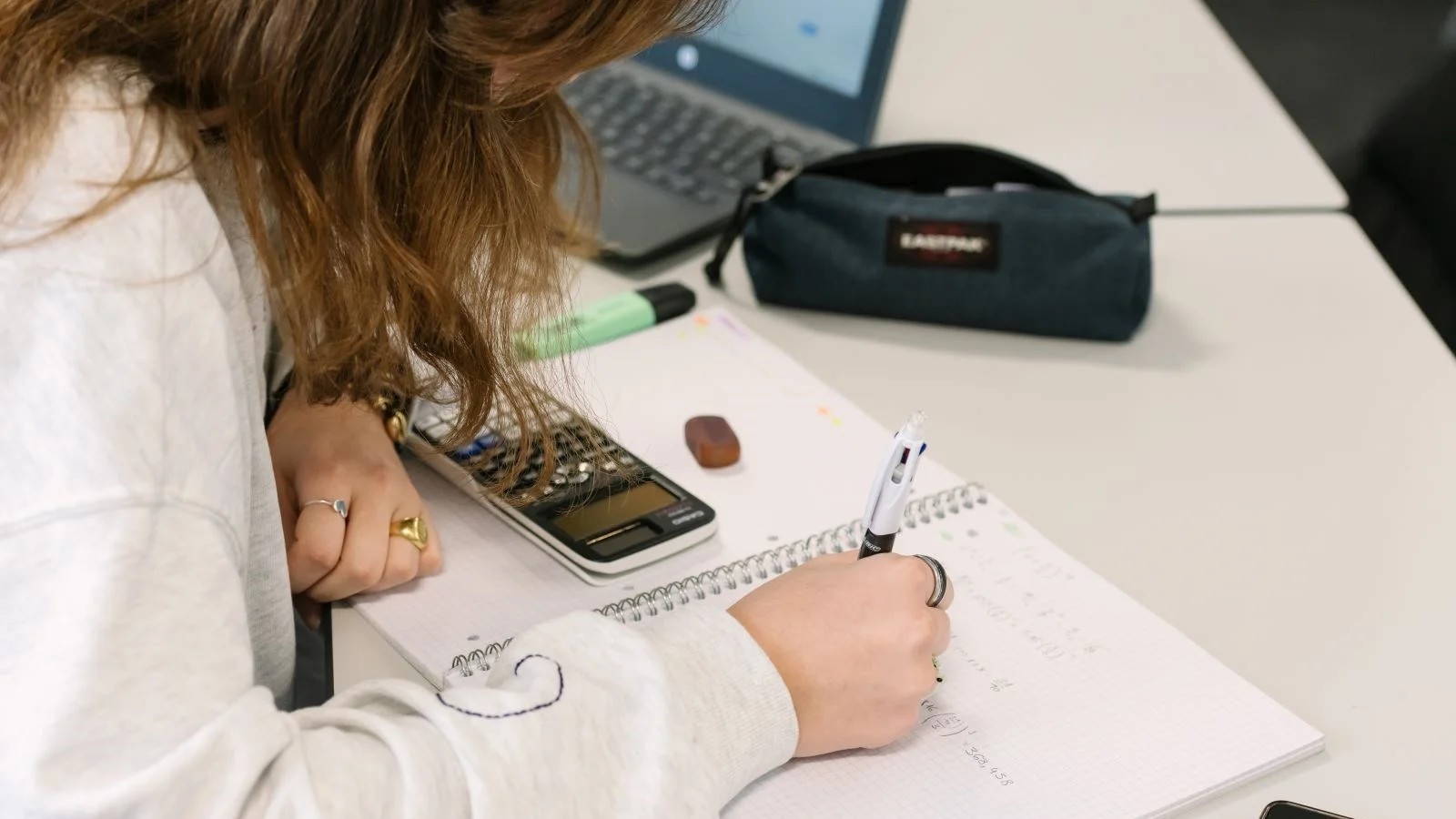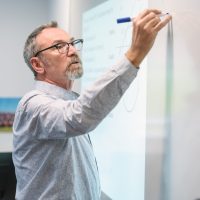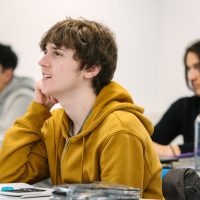
Maths and Further Maths
Mathematics is an essential tool for everyday life. It gives you an important key to understanding the world we live in as you develop your mathematical skills. The problem-solving skills you will develop studying advanced level Maths are highly valued in most careers, and mathematical ability is very highly regarded by both universities and employers.
A Level Maths
Core
- Irrational Numbers
- Algebra
- Coordinate Geometry
- Calculus
- Trigonometry
- Sequences and Series
- Vectors
- Numerical methods
Applied Topics
- Statistics
- Mechanics
A Level Further Maths
A Level Maths Core plus
- Complex Numbers
- Conic Sections
- Polar Co-ordinates
- Hyperbolic Functions
- Matrices
Our Option modules
- Further Pure 1
- Further Mechanics 1
- Further Statistics 1
Maths has always been my favourite subject so if there was an opportunity to learn more complex maths I would not liked to have missed it. It is a very difficult subject at A Level, but the sense of achievement after finally understanding something is so worth it.
Zeynep Saner, ex Dorothy Stringer
Course Essentials
Courses Available
Single Maths Course - this is the regular Maths A level, examined at the end of your second year.
Double Maths Course - this course teaches the regular Maths A level and Further Maths A level. You would complete your regular Maths A Level by the end of your first first year, including taking the exams. In your second year, you would complete your Further Maths A level.PLUS
How The Course is Assessed
100% Exam
Career Pathways
Maths qualifications are considered essential or desirable for a whole host of degree subjects including virtually all sciences, economics and related courses and many social science courses. There is a national shortage of mathematicians, and employment prospects are good. To get some idea of careers open to those studying Maths at A Level and beyond, look at the careers section at www.mathscareers.org.uk.
Transferable Skills
Problem solving; logical thinking; conceptual ability; analysis and interpretation of data; research skills.
Other Information
Students have the opportunity to take part in the UK Maths Challenge and the Southampton Cipher Challenge. University preparation classes for STEP, AEA and Oxbridge entrance exams are also available.
Enquiries To
Scott Cosby: sco@varndean.ac.uk
Alumni Success

Kerim Taskin
Studied: Studied: Maths (with Mechanics), Physics, 3D Design
Progression: Gap Year, then Design Engineering, Imperial College, London
Kerim chose Maths because of his great passion for the subject and his ability to understand it well. Whilst at Varndean, he joined the Maths Challenge and thereafter the Maths Olympiad. He also chose to study Physics as he believed it would be useful in his future career in engineering. 3D Design was his third subject because he loved making things. After leaving Varndean in 2017, he took a gap year for self discovery and to gain motivation to study at university and is now studying Design Engineering at Imperial College, London. In the future, Kerim hopes to be a designer, an engineer and an entrepreneur who can make a positive impact on the world. He has already founded a business called Sweren that aims to provide people with meaningful gifts to buy for their loved ones.
Kerim says: “Varndean is a great place for learning. My time there was probably one of my favourite periods in my life so far. I just felt motivated to study and give more than what was expected of me. I put this down the friendly environment where there is mutual respect between students and teachers. I was also struck by the inclusivity of the college. The Maths teachers were super cool and caring and having a good foundation with Maths helps a lot with engineering at university. Physics was one of the more challenging courses for me, but this really helped me push myself out of my comfort zone. 3D Design was one of my favourites courses I have taken in my entire life! The 3D classroom was a place where I felt so creative and free.”





